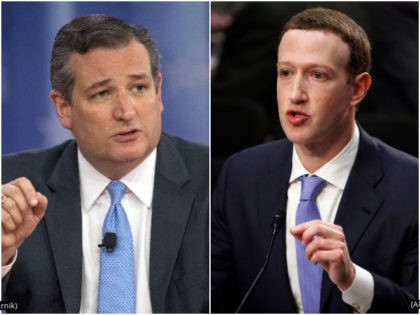Josh Hawley: ‘Time for Accountability’ with Google ‘Monopoly’
Sen. Josh Hawley (R-MO) scolded a Google executive Tuesday, saying that Congress’ patience with Google’s monopoly is running thin, and that it’s “time for accountability.”

Sen. Josh Hawley (R-MO) scolded a Google executive Tuesday, saying that Congress’ patience with Google’s monopoly is running thin, and that it’s “time for accountability.”

Sens. Josh Hawley and Ted Cruz urged the Federal Trade Commission (FTC) to investigate America’s largest technology companies’ censorship practices, given their “enormous influence” and the “alarming and endless” possibilities for abuse.

The Heritage Foundation released a statement ahead of the White House’s social media summit attacking alleged “heavy-handed” regulations while suggesting that the social media companies “are responding” to the question of censorship of conservative and alternative voices on the Internet. Heritage Foundation receives donations from Google.
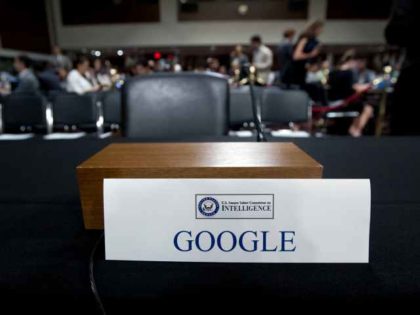
Nearly a majority of Americans back Sen. Josh Hawley’s (R-MO) legislation to “stop big tech’s assault on free speech,” according to a poll released Thursday.

Senate Judiciary Committee Chairman Lindsey Graham (R-SC) said Tuesday he would support amending Section 230 of the Communications Decency Act to combat online sex trafficking. Section 230 allows for big tech companies to censor conservative and alternative voices without significant legal recourse.

Sen. Josh Hawley (R-MO) slammed “supposedly libertarian” and conservative groups Wednesday for taking money from Facebook and Google. These libertarian and conservative groups have attacked Hawley’s bill to “stop big tech’s assault on free speech.”

Sen. Ted Cruz (R-TX) grilled a Google representative Tuesday during a Senate Commerce Committee on its political bias.

Sen. Josh Hawley (R-MO) said Wednesday that Section 230 of the Communications Decency Act grants massive benefits to Google, Facebook, and Twitter, allowing them to censor without significant legal recourse.
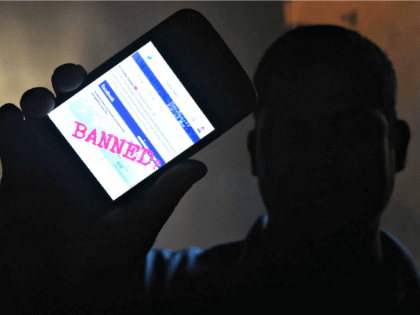
Sen. Josh Hawley (R-MO) proposed legislation Wednesday to end big tech companies’ legislative immunity, which would prevent them from censoring conservative and alternative viewpoints without significant recourse.

Tuesday on CNBC’s “The Exchange,” Rep. Matt Gaetz (R-FL) discussed his issues with certain tech companies and their treatment of conservative voices, which is a stark contrast to that of views on the other side of the ideological spectrum.
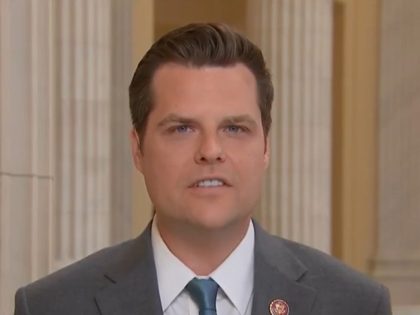
Sen. Ted Cruz (R-TX) proposed three solutions to Silicon Valley’s censorship practices: regulation, antitrust, and policing big tech’s fraud during a Senate Judiciary Committee hearing.
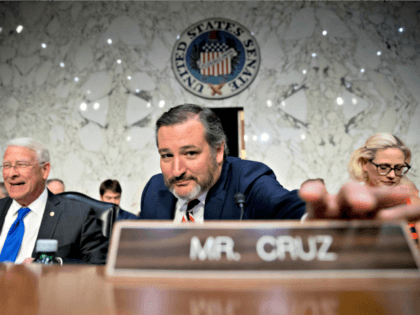
Facebook CEO Mark Zuckerberg raised the possibility that Facebook could start paying news publishers to feature their “high-quality news” on the social network, declaring that the company could “potentially have a direct relationship with publishers.”

President Trump responded positively to a suggestion by a conservative reporter that social media platforms that fail to remain politically neutral should lose their privileged legal position, which affords them immunity from lawsuits for user-generated content. But the President’s own trade bill, USMCA, actually strengthens that immunity, as previously reported by Breitbart News.

The Supreme Court has rejected a case regarding whether or not Yelp is responsible for allegedly defamatory reviews on its platform.

National Religious Broadcasters Urges Congressional Review of Big Tech Legal Protections

Despite long claiming to be a platform and not a media publisher — including in front of the Senate — Facebook is now claiming to be a media publisher in a lawsuit filed against the social media giant by an app company, which described the claim as “a complete 180.”

If Google were categorized as a publisher rather than a platform, it would wipe away the company’s legal immunities.

“The nexus of power in American media has moved from New York City to Silicon Valley,” said Sen. Cruz.
